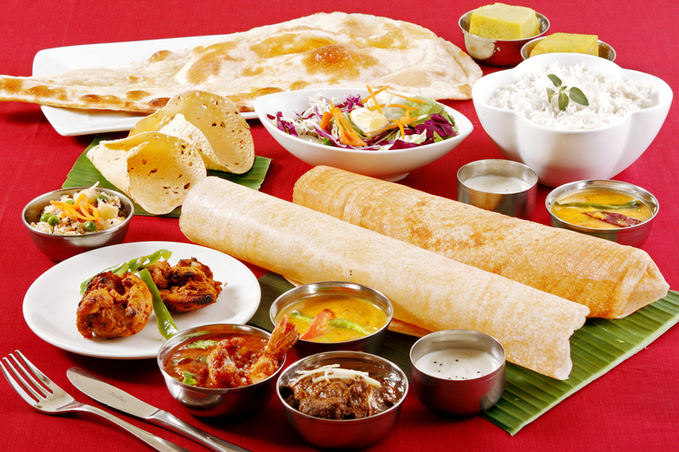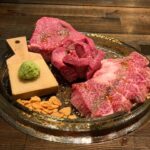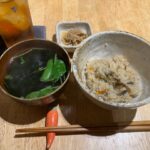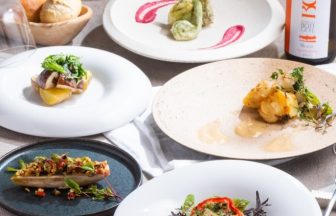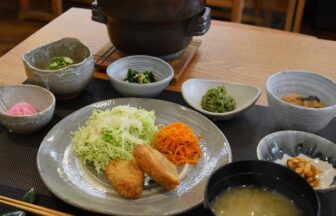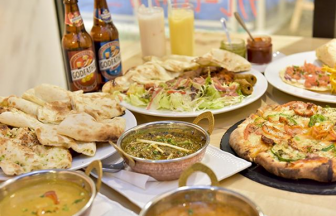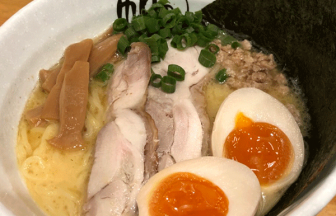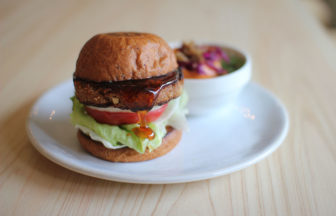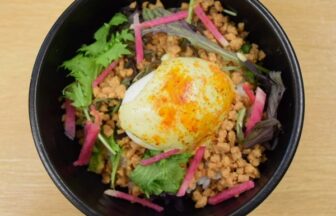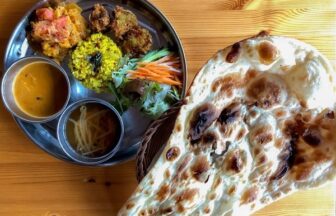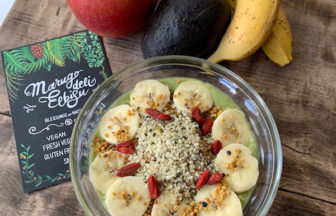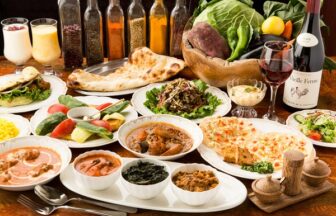The definitive South Indian cuisine! Enjoy the fascinating cuisine of Ayurveda at Dakshin, one of Tokyo’s most popular restaurants, where a five-star chef shows off his skills.
Dakshin South Indian Restaurant Higashi-Nihonbashi is a South Indian restaurant located about a one-minute walk from Bakurocho Station on the JR Sobu Line. Open for over 15 years, this long-established restaurant offers a variety of South Indian dishes, primarily North Indian, as well as South Indian cuisine.
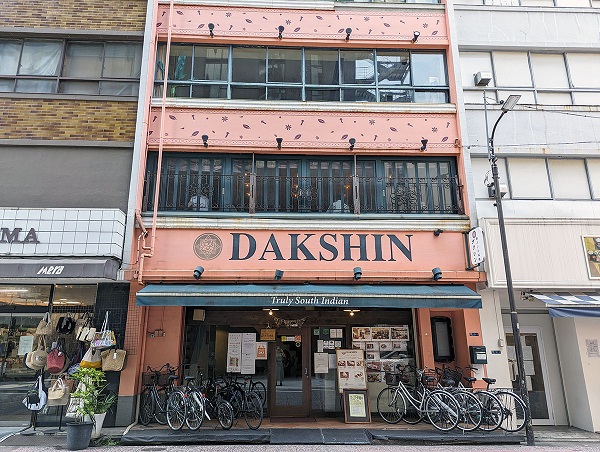
Dakshin South Indian Restaurant Higashi-Nihonbashi
The owner, a woman of Indian descent, was shocked to discover that there were no South Indian restaurants in Japan while working as an interpreter. Inspired by the image of curry as a typical lunch for office workers, she wanted to create a stylish, healthy restaurant that caters to women, even when dining alone. Dakshin was founded with this desire.
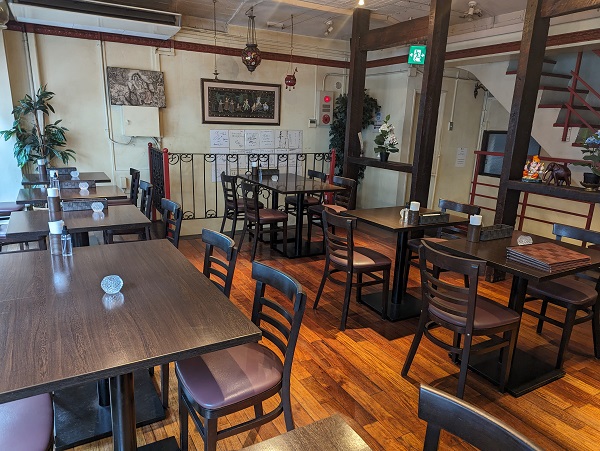
Second floor
Today, Tokyo is experiencing what’s being called a second South Indian food boom, with the number of South Indian restaurants increasing and their deliciousness being widely recognized through media coverage. However, 15 years ago, fully South Indian cuisine was rare. Rich North Indian curries and naans were more readily accepted by Japanese customers, which is why she decided to offer both North and South Indian cuisine. As you enter the impressive three-storey shop, you can see dosas, South Indian crepes, being baked to the right of the entrance. The iron plate used for dosas was apparently brought over from India, and is extra-large, a rare sight even in Tokyo. It’s fascinating to watch as the paste-like dough is stretched thinly, baked until crispy, and then shaped into a cone.
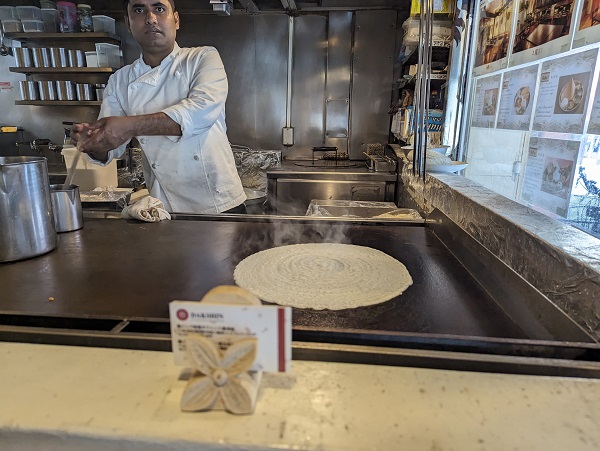
Dosas being baked
A must-try in Dakshin! Weekday lunches offer great value for money on dosas and meals.
For lunch, we offer a super-value dosa set. Want curry? And dosa? Lunch B fulfills both of those desires. The set includes a masala dosa, salad, rice, sambar (vegetable and lentil curry), coconut chutney (coconut sauce), and one daily curry of your choice.
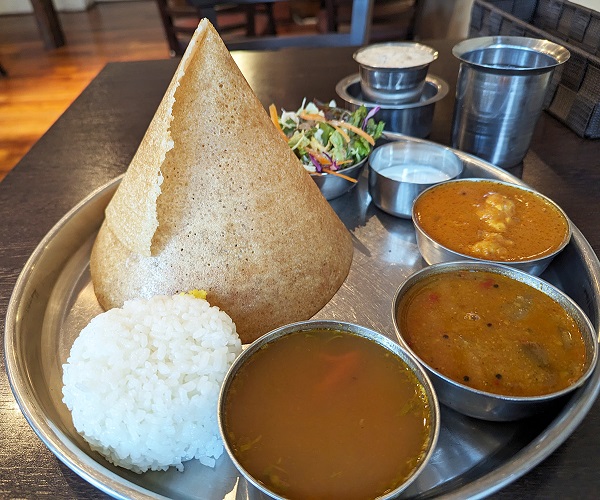
Dosa Lunch – 1,250 yen
Dakshin’s masala dosa is made from a blend of lentil and rice flour, and is cone-shaped. The dosa is topped with mashed potatoes seasoned with spices. Adding coconut chutney adds a mellow, rich flavor and instantly enhances the tropical feel.
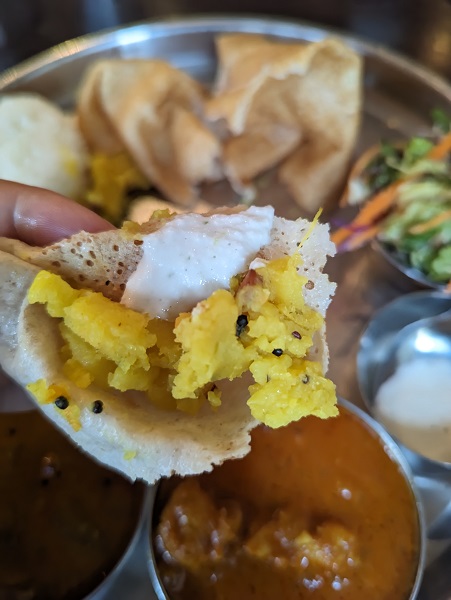
Dosa with Coconut Chutney
The photo shows the dosa lunch with the addition of side dishes of rasam (spicy tomato soup) and chai. The rasam has a punchy flavor with red chili and garlic. The not-too-sweet chai is just the right palate cleanser.
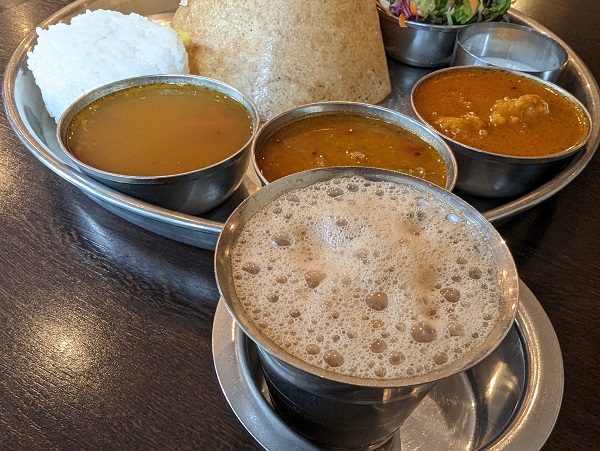
Chai
Poori is a South Indian deep-fried bread made from whole wheat flour. Its cute, balloon-like shape and hollow interior create a steaming sizzle the moment you crack it. It’s piping hot and delicious. It’s also available as a side dish, so you can order it as an add-on to a set menu.
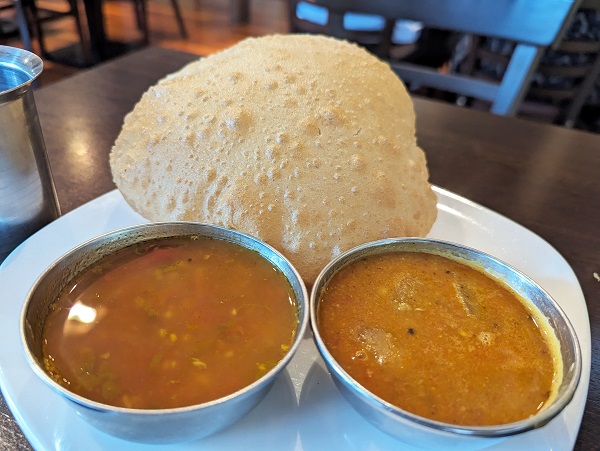
Poori, Sambar, Rasam
Our popular South Indian set meal menus offer a variety of dishes in small portions, and our lunch menu features three curries of the day. With all-you-can-eat naan and rice and refills of sambar, weekday lunches are a great deal for those looking to savory.
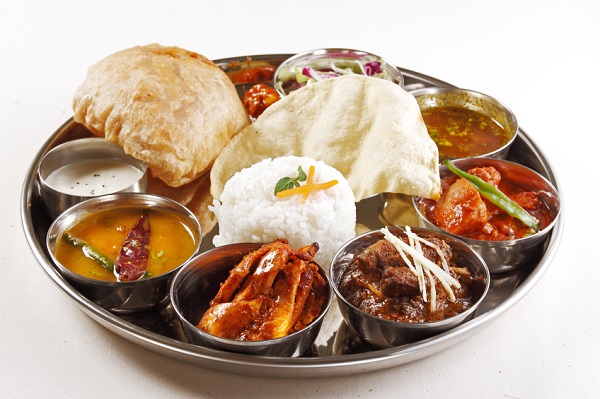
South Indian set meal menu
Highly rated on review sites! A long-established South Indian restaurant in the hotly contested curry district that impresses foodies
Recently, South Indian restaurants have been opening one after another in Tokyo, and the distinct flavors of South Indian cuisine are gaining recognition. Rice is the staple food in South India, where a wide variety of rice dishes are available. While biryani, made with meat or fish, is a well-known rice dish in Indian cuisine, South Indian dishes also include lemon-flavored fried rice (lemon rice) and vegetable bele bat (rice porridge-like rice dish), typical of the Mangalore region. At Dakshin, you can compare the flavors of North and South.
The name “Dakshin” apparently comes from the Sanskrit word for “south.” South Indian cuisine has a sour, refined, and sharp spiciness. Seafood curry is also a typical South Indian dish. Spicy shrimp stir-fry and crab and scallop curry are also popular.
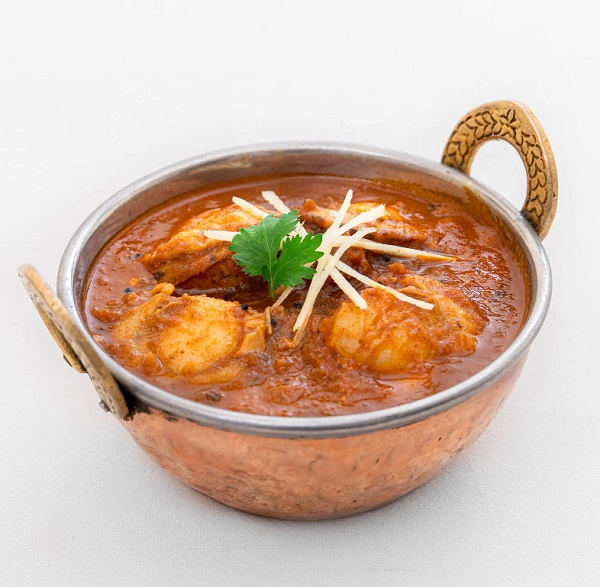
Scallop curry
Dakshin also offers a wide selection of South Indian breads, so be sure to try dishes other than the curry and naan combination. South Indian cuisine is perfectly matched with dishes such as the pie-like veechi porota, poori, and chapati, which are deliciously different from the sweet naans of North India.
All of the chefs at Dakshin, a South Indian restaurant, are originally from India. As they are Hindu, there is no beef on the menu. They serve chicken, mutton, and seafood. All menu items use halal meat. There is no pork on the menu. Based on traditional South Indian Ayurvedic cuisine, it is said to be good for health and beauty, purifying the body from the inside out. Please enjoy the luxurious flavors created with a refreshing spiciness, fresh herbs, and high-quality spices.
Supervisor / Recommender

- Halal Supervisor and Foreigner Food Coordinator (Cooking, Consulting, Public Relations)
-
Click here for introduction
I currently work as an editor, but my previous job was as a chef, with many years of experience working in hospitals, restaurants, and the food service industry. Looking back, I think my connection to halal may have already been there.
Decades ago, I once worked in a cafeteria at an auction venue. Over 60% of the visitors were foreigners. Many Muslims were present, and the venue had a mosque-like prayer space. I remember being frequently asked questions about whether the meat was halal and what kind of meat it was. At certain times, the cafeteria would become as lively as a festival. The Indian restaurant next door would generously serve free biryani, curry, and sweet drinks to everyone who came. Over 100 people, including people wearing bright red turbans, galabeyas, and traditional attire, gathered in the cafeteria, all sitting around the same table and enjoying a truly enjoyable time. Looking back, it was iftar, the end of fasting, and I understand the significance of sharing, but at the time I was ignorant of halal and Islam, and didn't even consider how to respond. They only ate the curry made by the Indians in the restaurant. As I studied halal, I realized, "I wanted to eat Japanese food, but I couldn't." I regret not doing anything even though there was something I could have done.
If only it didn't contain pork! If only it didn't contain wheat or buckwheat! I could eat it... Food insecurity is different for each person.
That's why I think it's important to learn about the differences in culture, religion, and lifestyle that underlie it, and to create an environment where everyone can enjoy delicious meals in comfort.
The desire for delicious, safe, and secure food is universal. The times are calling for people to live in new ways that transcend borders and religions. I hope that halal can be a gateway to eliminating food insecurity, contributing even in some small way to a society where people can coexist and prosper with more liberal thinking, and to global harmony beyond.
Latest entries
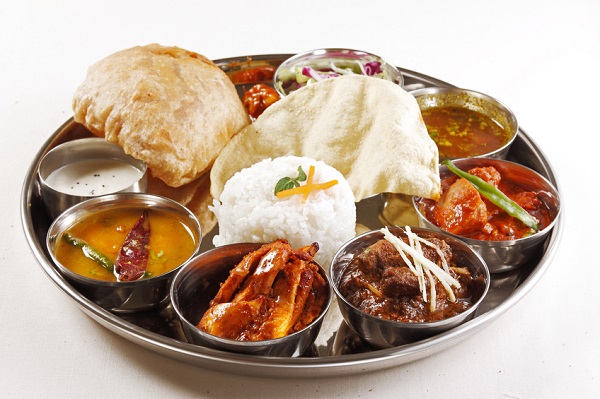 Tokyo2023年11月4日Dakshin South Indian Restaurant Otemachi Branch
Tokyo2023年11月4日Dakshin South Indian Restaurant Otemachi Branch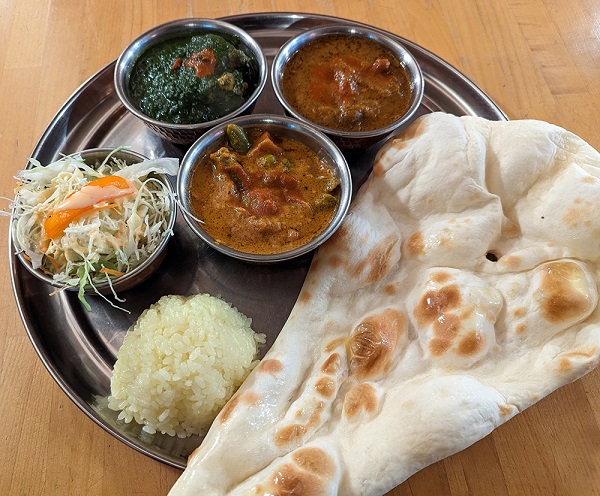 Tokyo2023年10月23日Gandhi Mahal
Tokyo2023年10月23日Gandhi Mahal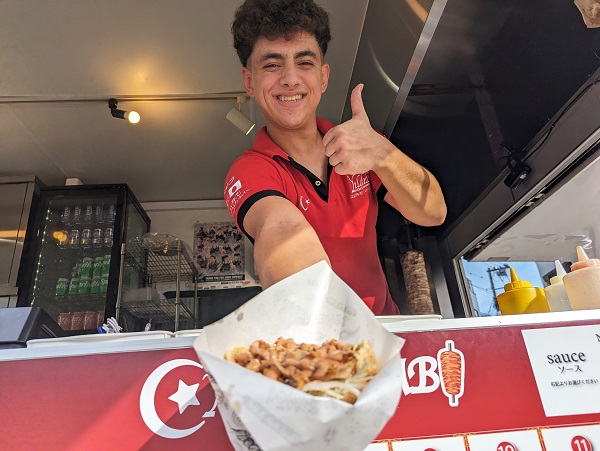 Tokyo2023年10月23日Yıldız KEBAB
Tokyo2023年10月23日Yıldız KEBAB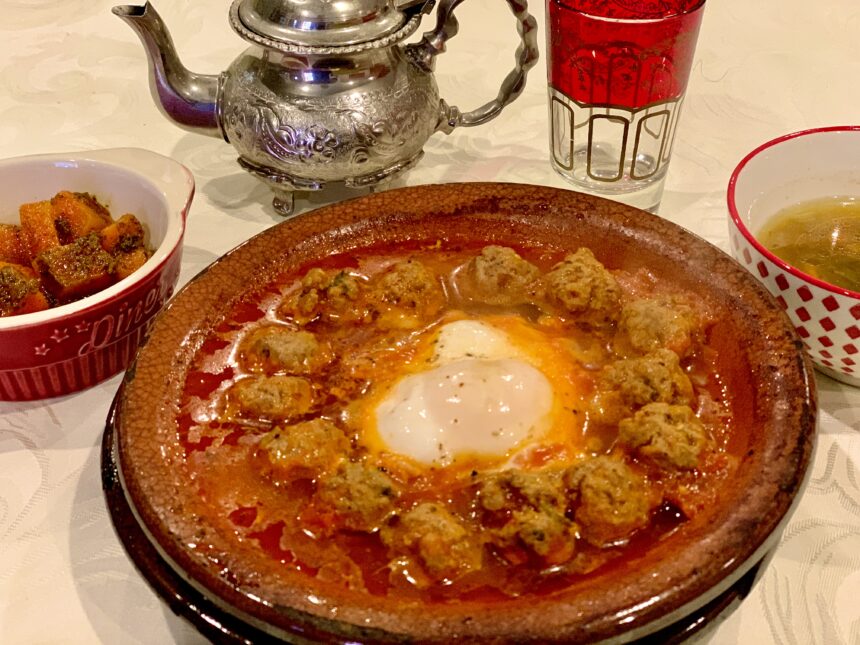 Tokyo2023年10月4日Restaurant Morocco
Tokyo2023年10月4日Restaurant Morocco

